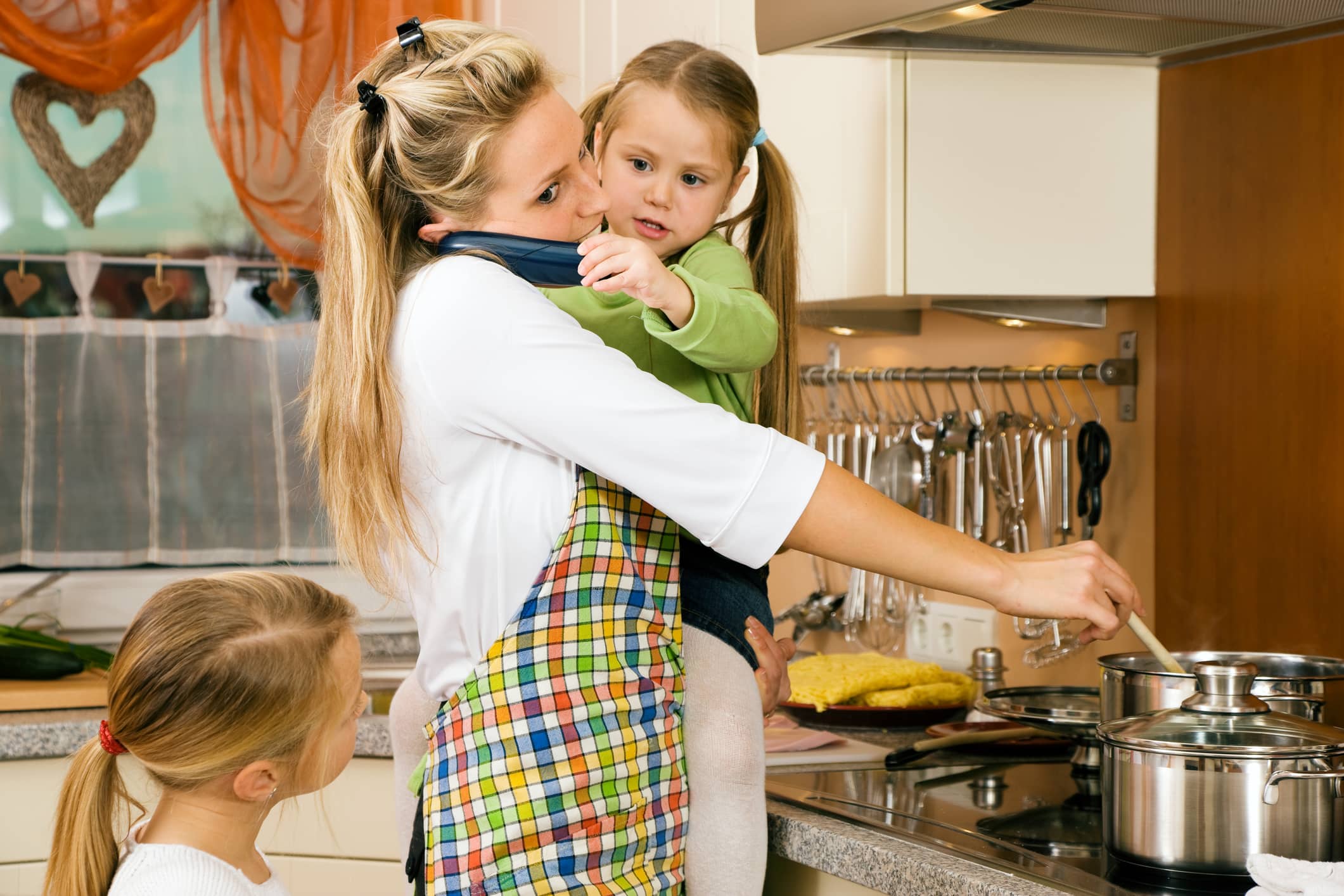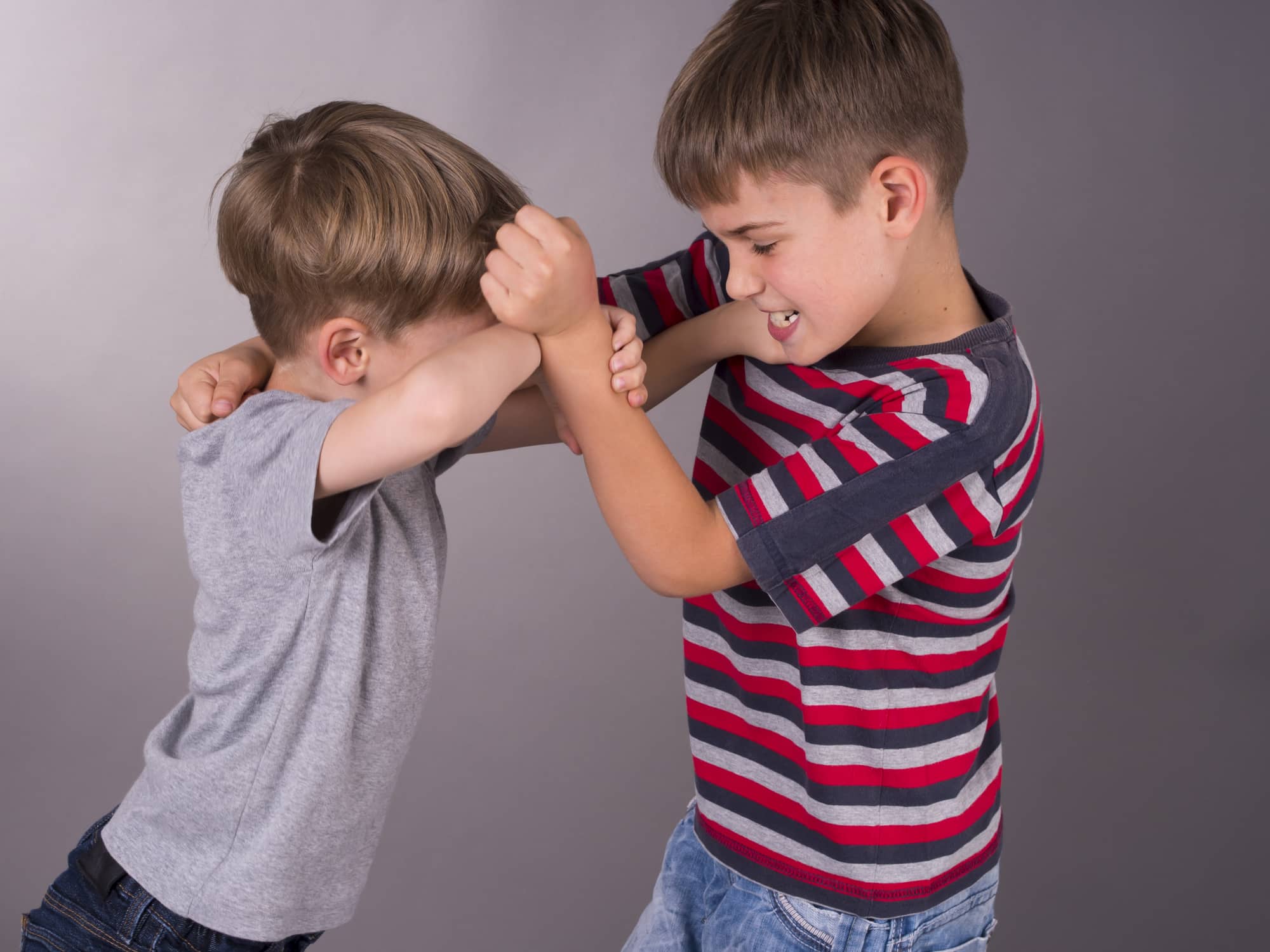Sibling rivalry is practically guaranteed as soon as a family has more than one child. But that doesn't make it any easier to handle or any less frustrating for parents! Most parents have a very different ideal home life in mind.
When brothers and sisters fight and argue, the entire family dynamic is rocked. Arguments at home can easily spill into each family member’s work or social life. Strife can make a happy, healthy family life seem like an unattainable dream. In extreme circumstances, it can even lead to enduring psychological or physical pains. This dynamic often leaves parents questioning their parenting ability.
Estimated reading: 6 minutes

Heartmanity is proud to partner with outstanding companies that we wholeheartedly recommend so this post may contain affiliate links. You can read our full disclosure here.
Table of Contents:
Does Sibling Rivalry Make You a Bad Parent?
What Is Sibling Rivalry?
Possible Behaviors of Sibling Rivalry
Common Causes Fueling Sibling Rivalry
Lessons Children Learn Through Conflict
What If Parents Allow Children to Fight?
Managing Expectations as a Parent
How to Deal with Sibling Rivalry
Parenting Solutions Applying Emotional Intelligence
Closing Thoughts
Additional Parenting Resources
Frequently Asked Questions
Does Sibling Rivalry Make You a Bad Parent?
What would a “good” parent do and what makes you a "bad parent"?
If you're asking, 'How can I be a good parent?" or "How can I best care for my children amidst this turmoil?' or "Is there a way to stop kids fighting and eliminate sibling conflict?" read on.
Hisham Matar in Anatomy of a Disappearance wrote:
“I wanted this world to still. I wanted to fix it and be fixed within it. But everything was on the move, the clouds, the wind…”
Parenting siblings who fight can feel eerily similar to that state of duress. The thing is, the world will always be “on the move.”
Rather than spend time and energy wishing for some unattainable, perfect peace—it is much better to understand the turmoil and work with it as a natural aspect of life.
Caring for children while resolving family conflicts is a part of the dance.

What Is Sibling Rivalry?
Sibling Rivalry is generally the conflict and competition between siblings. The intensity of these conflicts can be influenced by many factors. A few things that can impact whether or not children fight include birth order, age difference, temperament, and how we as parents respond to their fighting.
Understanding why rivalry happens is vital in order to address it. Once you’ve identified what rivalry looks like, trying to find the reason behind it is the next step. Let's explore a few of the common reasons for sibling rivalry.
Possible Behaviors of Sibling Rivalry
Sibling rivalry, like most human interactions, has roots that go much deeper than what you see on the surface.
At face value, rivalry can manifest in a variety of ways:
- arguing verbally
- physical altercations
- stealing
- name-calling
- blaming
- breaking or hiding things
- tattling
- and even, just staring can set off a fight!
Believe it or not, these behaviors are often symptoms of unmet emotional needs.
Just as people have different emotions and personalities, different children will express their needs in different ways, some by misbehaving.
The first step toward managing sibling rivalry is simply observing children interacting and noticing how rivalry comes to the surface.
Common Causes Fueling Sibling Rivalry
For many children, disputes are directly related to the need for interaction or attention.
Children Seek Emotional Connection
Arguments—though adults might not first think of them as a positive interaction—are at their core, human interaction.
For children seeking connection, disagreements can be a quick way to get a reaction from both peers and parents. Even though it is a tumultuous connection, arguing is still a form of communication.
When children fight, it can be to connect with each other or to grab a parent's attention for CONNECTION.
Children Desire Attention from Parents
Another reason for arguing between children is to get attention. Even though it is not always true that children act out to gain attention from their caretakers, outbursts do tend to invoke a quick reaction from adults.
The need for attention could also be a side-effect of boredom. Quarrels create conflict, get attention, and therefore increase excitement, even if it's ultimately detrimental.
 Power Dynamic
Power Dynamic
Power is one of the other main explanations for hostility. Whether the disagreement is an attempt from one sibling to gain dominance over the other, or a way to become the “favored child”—fights are ultimately an attempt to win.
In many cases, the “prize” has less to do with an object or a superficial thing and more to do with strong emotion.
Sometimes, the rivalry IS simple.
Environmental Factors
While deep emotions can be the cause, environmental factors are just as likely to set children off, especially young ones.
When children are uncomfortable—hot, hungry, tired, ill—or simply kept in close proximity for longer than they’d like, quarrels are common. Brothers and sisters are just like everyone else; they get unhappy when they are stressed or uncomfortable. But with siblings, there also happens to be another person readily available to take out that discomfort.
This sounds illogical, but sibling fighting has its benefits.
Before reaching for your toolbox of fix-it skills, consider the things that arguments can actually teach children.
Lessons Children Learn Through Conflict
Even while you work to find a remedy and resolve conflict with your kids, acknowledging its place in natural childhood development might ease that gut reaction to stifle any conflict.
Teaching your children conflict resolution skills is far more productive
than thinking that your family is failing when conflict arises.
Disputes with siblings, who are a huge part of children’s social life, teach children life lessons, including how to:
- manage power dynamics in social situations
- learn to respect different opinions
- communicate their wants and needs
- build EQ skills in effective communication and negotiation.
- discover what's important to them
- assert themselves
Honoring these inherent life lessons can allow the conflict to seem less “bad” in the black-and-white, all-or-nothing sense.

What If Parents Allow Children to Fight?
As parents, we are continually sending our children messages through what we do and say—and what we don't do and say. Modeling is a powerful parenting tool.
When we ignore children fighting and let them hash it out, it's possible for one or both children to get hurt. And if we overreact and intercede, our children don't learn how to settle their differences and express themselves appropriately.
Here are just a few of the possible lessons children can inadvertently learn.
- Fighting equals attention.
- Only the strongest person wins.
- Winning is power.
- There are two choices: fight or give in.
- It's not my job to reach a resolution. (It's mom's or dad's)
- When I hurt, I must hurt back.
- Overpowering others is how I get what I want.
Managing Your Expectations as a Parent
Managing your own expectations as a parent might not seem like a solution for squabbling children, but it is a huge step in easing your own discomfort and stress.
Anxiety is a direct effect of expectations not aligning with reality.
For many parents, the desire or expectation that home life will be peaceful makes anything less—disappointing.
The same goes for the expectations of children. Hoping that children will always communicate effectively and clearly, use their words, follow the rules, and respect each other is unrealistic. And that mindset serves to set yourself up for disappointment rather than to set your children up for success.
Of course, there is nothing wrong with having values and goals while striving for peace, but keeping expectations realistic will help mitigate anxiety before it starts.
 If your parents put you in a shared T-shirt and told you to "get along," when you were young, consider how these past experiences could be influencing your reactions to your children's sibling rivalry.
If your parents put you in a shared T-shirt and told you to "get along," when you were young, consider how these past experiences could be influencing your reactions to your children's sibling rivalry.
It's always wise to consider how varying things are affecting your expectations of your children or your family life: a child’s birth order, gender, temperament, age, or personality traits.
Stereotyping a child as the “easy” child, the “difficult” one, the "responsible eldest," or the "temperamental youngest" creates unhealthy labels. Labels limit how we love one another.
Another thing to ponder is how your own parents handled fighting within your family growing up—either with you and your siblings or amongst their own. If you were raised with parents who told you to “work things out on your own,” “just cut it out,” or who punished rivalry with similar parenting tactics, that might subconsciously affect your own visceral reaction to your own children's arguments and fighting.
The final step is compiling a toolbox of skills to handle sibling rivalry in your family.
Many people skip directly to this step, hoping for a cure-all fix that will quickly subdue conflict. But understanding the how and why of rivalry, the importance of disagreements, and your own expectations will strengthen your eventual toolkit and your resolve to handle rivalry effectively.
Get parenting support with this Positive Parenting Solutions course.
How to Deal with Sibling Rivalry?
Resolving sibling struggles has many pieces.
The first step is understanding how rivalry manifests and why. Next, is accepting that rivalry is a natural, and even necessary process.
Third, managing your own expectations as a parent will greatly help.
Finally, compiling a toolbox of parenting solutions and working diligently and mindfully CAN calm the storm of siblings fighting and bickering.
Parenting Solutions Applying Emotional Intelligence
Here are some solutions that use emotional intelligence to resolve sibling fighting.
- Stay out of the fray until your presence is necessary.
- Children naturally learn conflict resolution skills by working through issues (as long as your children are safe). When you do get involved, encourage them to brainstorm solutions where they both can be happy.
- Do not discipline children in front of one another; this can augment the natural rivalry and sense of hierarchy.
- Educate your children with emotional intelligence tools; encourage empathy and active listening. Teach win-win resolutions.
- Give children positive attention when they're being their best selves. Definitely give more attention when acting appropriately than when they are acting out. This will discourage fighting for the sake of getting attention.
- Set clear expectations and healthy boundaries for their behavior and talk about the repercussions of fighting. Then, stick to the plan you made.
- Treat each child as a unique individual. You do not have to interact in exactly the same way. Every child has a unique temperament and communication style. Take these differences into account instead of using global, across-the-board punishments or rules.
Get parenting support with this Positive Parenting Solutions course.
* * *
Closing Thoughts
Educational speaker Steve Maraboli said:
“Stop trying to 'fix' yourself; you're NOT broken! You are perfectly imperfect and powerful beyond measure.”
He may have been talking to adults about their own self-perception, but the same is true of families.
Families that experience sibling rivalry are not “broken” or “wrong.” Arguments are a natural process and an outgrowth of family life. However, with the right awareness, emotional intelligence, and parenting tools, conflict can be a natural part of life without taking down the entire ship of family life.
Additional Parenting Resources
Try the Positive Parenting Solutions online parenting course and other resources for information on family conflict management.
Get our HeartMail newsletter to stay current on the latest parenting tips, skills, and support.
Frequently Asked Questions:
What causes sibling rivalry in adulthood?
There are many reasons for adult children to continue fighting and rivaling each other. No simple answer.
However, it is most likely this pattern was established while growing up and they haven't outgrown the dynamic. They can feel jealous of one another and still be competing for a parent's attention. They could feel slighted because their parents paid for college for one but not another.
Sometimes grown children never learned how to resolve conflict effectively when they were young. And if arguing and fighting got mom's or dad's immediate attention, they might have learned that this is the way the world works. However, remember how unique every family and child is so there are many contributing factors, some obvious and others subtle.









